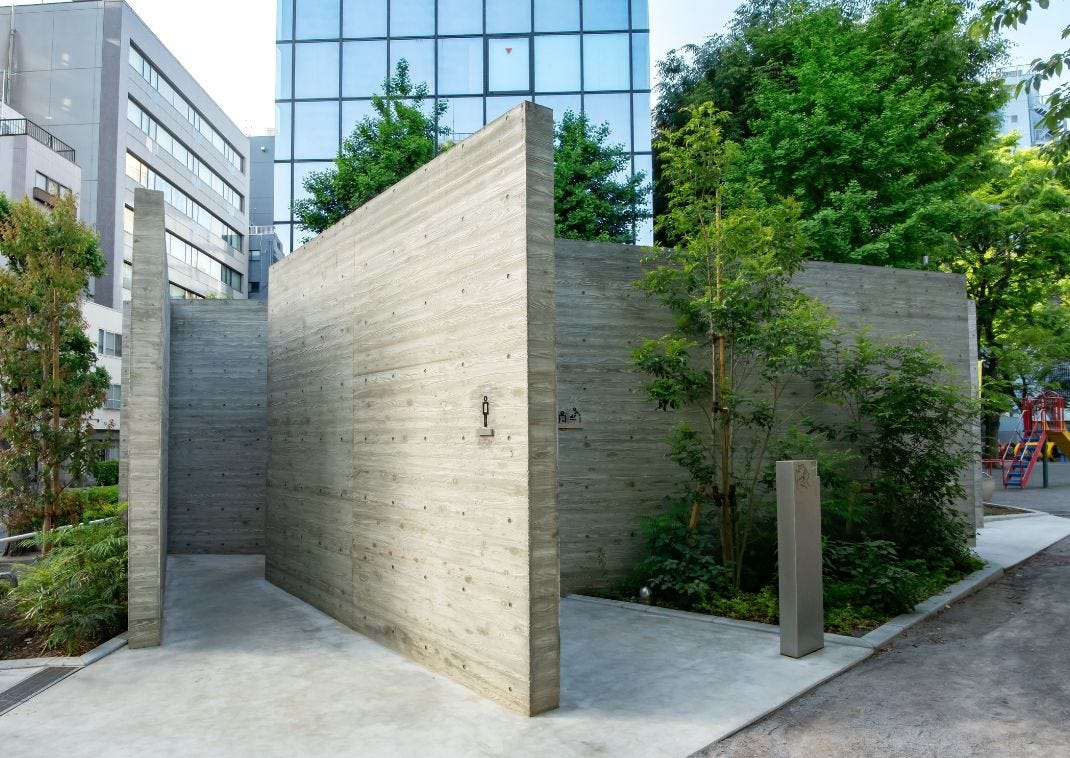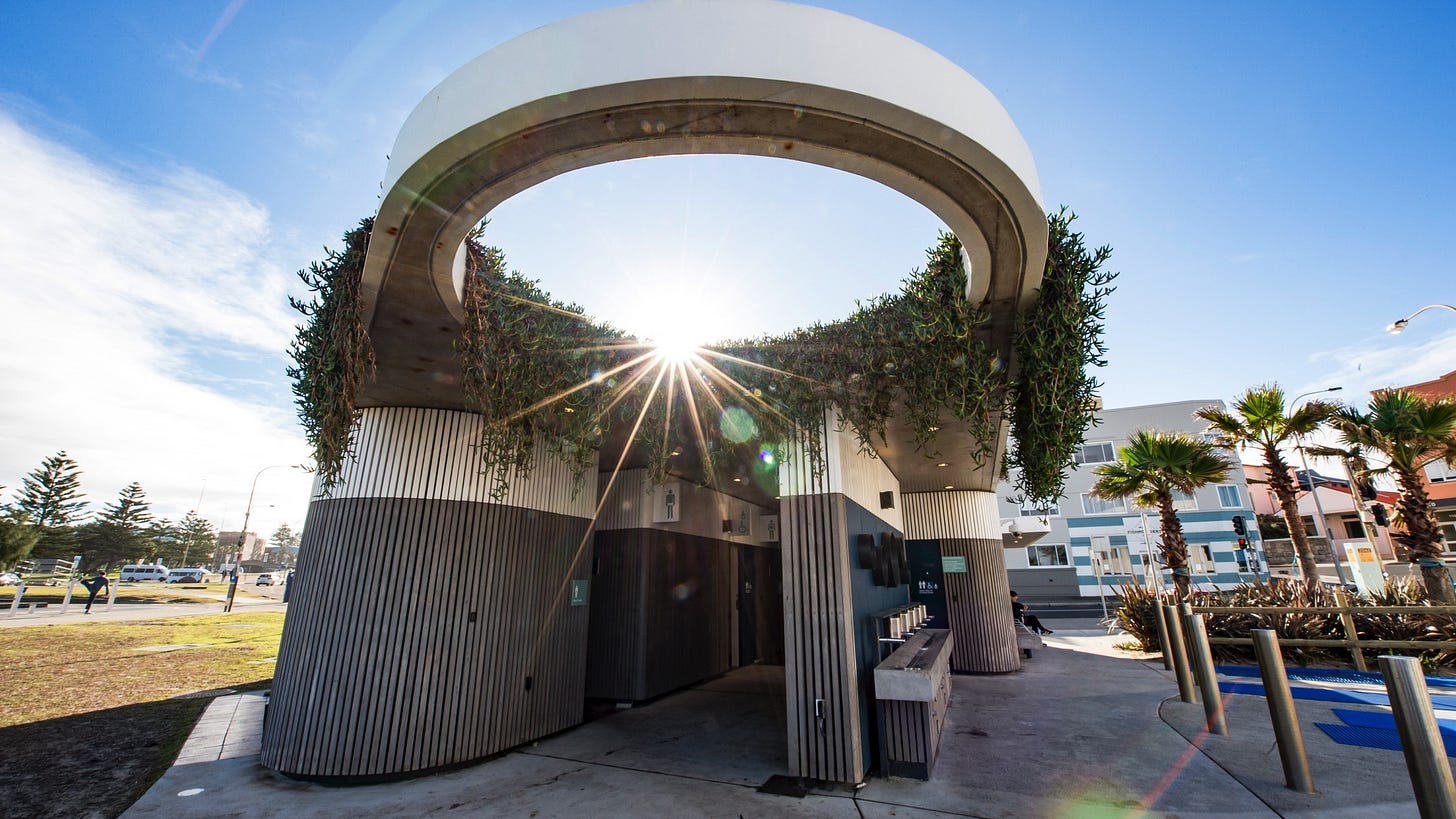(I was sick last week and then traveling so thank you for sticking around in the absence of a newsletter. I appreciate it.)
I have spent the week in New York City. One the greatest, perhaps the greatest, city in the world. It is the city of life, ambition and endeavor. If you can make it here... etc. To be in this city feels electric, inspiring, life-giving. Unless, of course, you need to do something simple like have a piss.
For some reason, America hates a public toilet. They are few and far between and when they do exist, they are not clean or sanitary or looked after by either owner, steward or user.
Well, this is America. Bathrooms are for customers only. They have keys attached to objects so absurdly large (hubcaps, bricks, a wooden spoon, a cowbell) they seem like a parody of access itself. This isn't just about the way America views its citizens less as people with bodies and this more as consumers with credit cards.
It’s not that public toilets are some extravagant luxury. It’s a basic thing, part of what cities need to function, like sidewalks or streetlights or garbage cans, the last of which, incidentally, are also getting harder to find. But the lack of bathrooms points to this underlying assumption that if you’re out in public without a clear transactional purpose—if you’re not buying or selling or at least making the city some money in sales tax—you’re suspect.
The true American sin of homelessness is not about having nowhere to sleep but the inability to partake in capitalism’s core directive: to consume.
So you get these farcical scenarios: people slipping into chain stores pretending to browse just to use the bathroom, or paying $7 for a cup of burnt coffee they don’t want because that’s the ticket price for 90 seconds of relief. And that coffee, compounds the original need for a restroom. It just means you'll need to go again somewhere else in the not too distant future.
Even the places that do have restrooms guard them with that little flick of suspicion: the code on the receipt, the key at the counter. Access is always conditional. It’s a small indignity, sure, but enough of those stack up and start to feel like a worldview. Because it is.
If you follow this lack of toilets to its logical conclusion, it’s not really about waste management or budgets but about how the system sees you. It says: If you’re not here to buy something, why do you even exist? It says: Solve your own problems, buddy.
There’s this persistent myth in America that everything public is somehow inferior or suspect, from schools to hospitals to transit systems, and it leaks into everything, even the question of where people are supposed to pee. The absence of public restrooms is not only the result poor urban planning; it’s an ideological statement. It’s about not having to care about people who aren’t currently generating revenue
We prefer not to see people in need at all, if we can help it. This is why benches have armrests in the middle to keep anyone from lying down, why parks play high-frequency sounds at night to drive off teenagers and vagrants. It’s why we build hostile architecture and call it urban planning. A public restroom is too raw a reminder that people are vulnerable, that they sweat and bleed and excrete, that they can’t always hold everything in. The absence of toilets isn’t just about public health or budgets; it’s about control. It’s about pretending that, in public at least, we have no needs at all.






